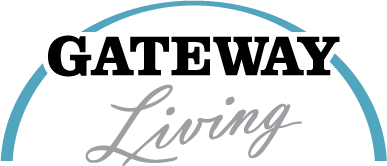Alzheimer's Care Tips for Managing Money
When a family member gets diagnosed with Alzheimer’s disease, a caregiver’s first instinct is to focus on the physical wellbeing of that individual. While this should definitely be the main priority of Alzheimer's care, financial aspects should not be ignored.
Money management problems often come with any medical condition, and Alzheimer’s is no exception. By detecting financial issues early and knowing which steps to take, you can prevent financial harm from happening to you and your loved one.
Notice the Signs
Alzheimer’s can be gradual, meaning that at the beginning stages, your loved one may be able to perform basic financial tasks like paying bills. As time progresses, it may become more difficult for them to do more complicated tasks, and they may try to hide struggles in order to maintain independence.
A family member, caregiver, or trustee should pay close attention to these warning signs of money problems:
Struggle with counting change or paying for a purchase
Trouble understanding a bank statement
Problems calculating a tip
Overwhelming purchases on a credit card bill
Money missing from his or her bank account
Step in When Needed
Often, a person with Alzheimer’s will want to hold on to their financial affairs as long as possible. Like any person, they want to retain a feeling of autonomy in their lives, and managing their finances can play a critical role here. To provide effective Alzheimer's care, help your loved one maintain his or her feeling of independence:
Allow them to carry a small amount of cash regularly
Minimize the spending limit on credit cards
Maintain communication with them about what is going on with their finances
Make legal arrangements in advance
Stay Protected from Financial Abuse or Fraud
Even the closest friends and relatives can be a threat towards a person with Alzheimer’s. It’s important that records are kept in order to detect suspicious activity. Your loved one may also be vulnerable to telephone and online scams in their condition – know the problem signs and take action if you notice one or more of the following:
Unfamiliar signatures on documents or checks
Changes to his or her will that were not authorized
Changes in property, or other real estate issues
Missing items and valuables
Substantial amounts of money spent
Any other unknown activity on credit cards or financial documents
Alzheimer's Care at Gateway Living
Alzheimer's is a complicated disease and providing Alzheimer's care can feel even more complicated. If your loved one needs additional support, we are here to help.
At Gateway Living, we have a committed team of caregivers and nurses to support our residents around-the-clock. Our staff prepares daily meals that are nutritious and designed to support our residents' well-being. Additionally, our campus is located in a safe, residential neighborhood, and each of our seven houses has dedicated memory care units.
To learn more about our campus and the services we provide, please send us a message online or call us at (541) 744-9817.

